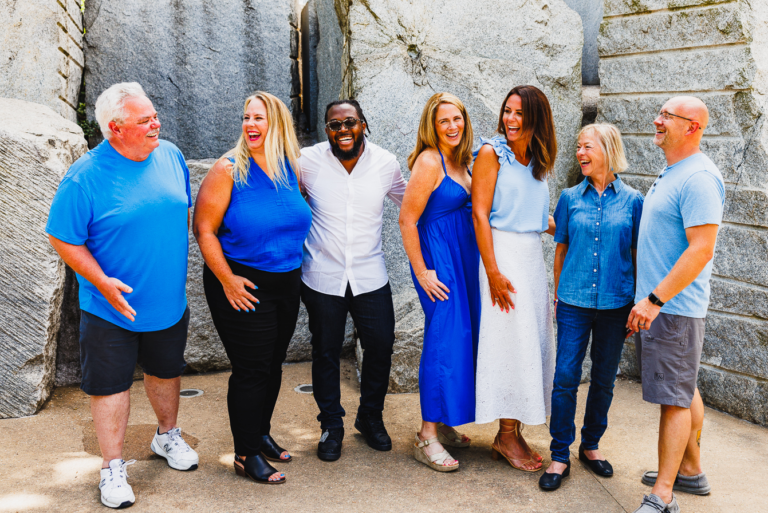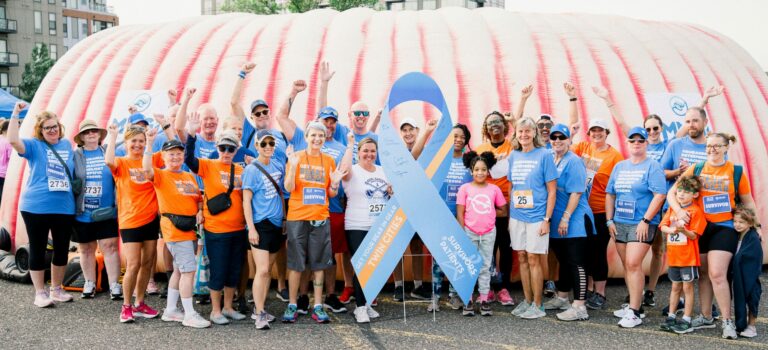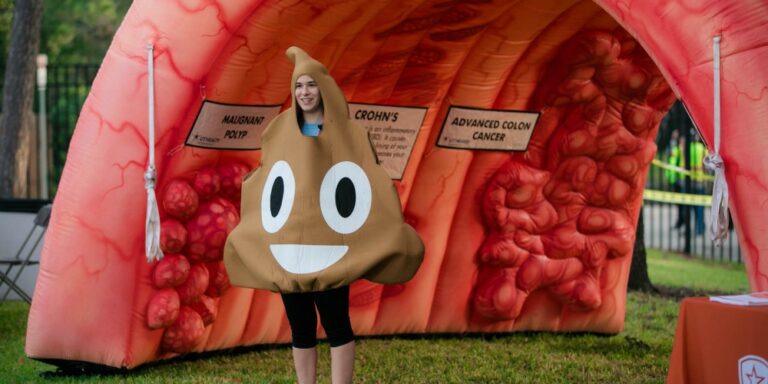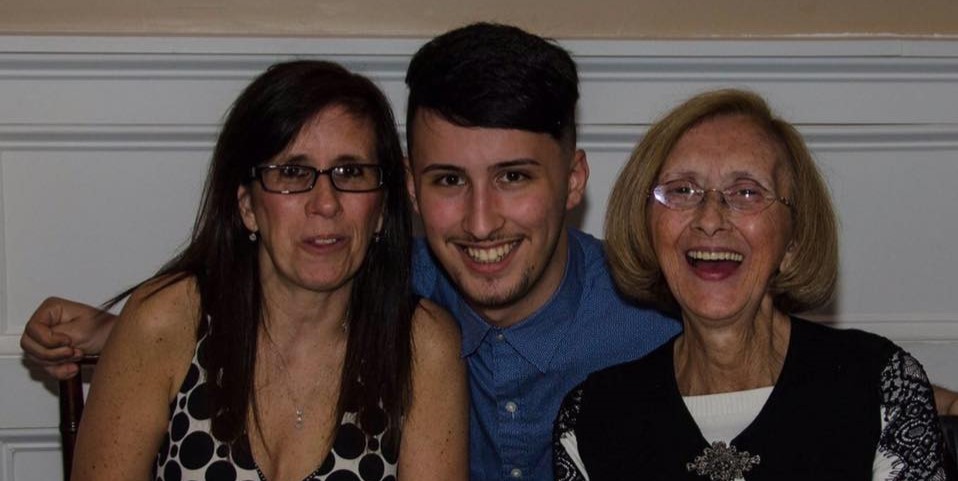
When I was 18 I was diagnosed with familial adenomatous polyposis (FAP), a rare genetic form of colorectal cancer that accounts for 0.5 percent of all cases of colorectal cancer. On average that is just 2.29 to 3.2 per 100,000 individuals. With FAP it isn’t a question of if you will get cancer, but when. FAP patients have a gene that doesn’t stop the growth of polyps in our large intestine, instead they multiply. At 18 I had a blood test and subsequent colonoscopy to confirm I had this gene. After my colonoscopy the results of my test and the inside of my large intestine confirmed I had indeed inherited FAP. My colon had thousands of polyps. It looked like it was covered in bubble wrap. It was alarming to say the least.
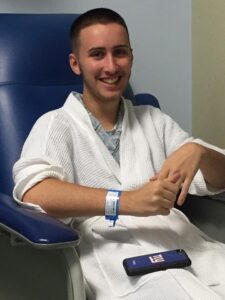 After my diagnosis I felt alone and scared. Luckily for me though I had three other family members who had all lived with the condition; my mom, my grandmother, and my aunt. Despite the challenges I was facing, having them in my corner to understand and walk me through it was a blessing that I know not everybody has. This support is what led me to writing a book after I had made a full recovery.
After my diagnosis I felt alone and scared. Luckily for me though I had three other family members who had all lived with the condition; my mom, my grandmother, and my aunt. Despite the challenges I was facing, having them in my corner to understand and walk me through it was a blessing that I know not everybody has. This support is what led me to writing a book after I had made a full recovery.
As part of my treatment/recovery I had two surgeries. The first was nine hours where they had to remove my entire large intestine – this is where the polyps grow exponentially and will continue to grow unless the organ is removed. After removing my large intestine, they also created a J-Pouch. This means they took the ileum (the end part of the small intestine) and suture it together to create a “J” shaped pouch. This effectively removes the need for an external ostomy. The first surgery, however, was long and I lost a lot of blood. I wore an external ostomy for roughly three months after my first surgery while my intestines healed.
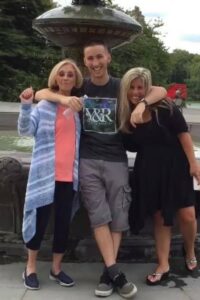 The second surgery reversed the ostomy and to anyone who doesn’t know what an ostomy is, it’s when you have a piece of your small intestine sticking out of your body. The ostomy was diverting waste away from the parts of my body that were healing and this in turn is probably why my quality of life is so exceptional today. While it was tough wearing the temporary ostomy for three months, it definitely saved my quality of life in a lot of ways. After three months of healing, my small intestine was connected back to the J-Pouch they had constructed months ago.
The second surgery reversed the ostomy and to anyone who doesn’t know what an ostomy is, it’s when you have a piece of your small intestine sticking out of your body. The ostomy was diverting waste away from the parts of my body that were healing and this in turn is probably why my quality of life is so exceptional today. While it was tough wearing the temporary ostomy for three months, it definitely saved my quality of life in a lot of ways. After three months of healing, my small intestine was connected back to the J-Pouch they had constructed months ago.
After I got through the darkness of my situation and was beginning to make a full recovery I had a perspective shift. It’s hard to explain in a simple way but it felt like I was living life in high definition. All the things I used to take for granted and worry about, were no more. I was more appreciative of all the little things that I could do again, things that had been taken away from me after my surgeries. After my encounter with rock bottom as I put it in my book, I came out a stronger, wiser, and better person. With this new found appreciation for life, I wanted to give back to people in a meaningful way.
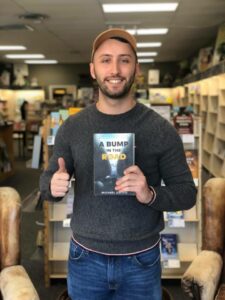
I wanted to write my story so I could shed a light on this rare condition that negatively impacts thousands of lives across the globe in silence. I know how difficult it can be for FAP patients when it comes to feeling alone and misunderstood when it comes to our condition. Doctors aren’t always familiar with it and neither are people. These two factors can create some unnecessary difficulties. By penning my story to paper, I hope it can shed light on this topic to improve patients quality of life or even possibly one day, a cure. I know that is a big goal and my condition is rare, so not everyone can relate.
My book isn’t just for colorectal cancer patients or FAP patients, it’s for anyone who has experienced adversity in any meaningful way. I had a lot of physical ailments on my road to recovery but I had even more mental hurdles to overcome. I learned while going through my battle that we all go through battles. We all have “bumps in the road.” I wrote my book to show young people that no matter what you are going through, you can turn your life around. The fight isn’t over and better days are ahead.
In the two years since writing my book I have had email conversations with people who relate to my story with FAP and even people who never had a health issue. To say my FAP diagnosis has been a blessing would be an understatement and instead of being angry at what happened to me, I am thankful. It has given me a chance to give back in a meaningful way, which is what I always wanted.
More about Mike:
At the age of 18 Michael Caprio followed in the footsteps of his mother, aunt, and grandmother before him with and FAP diagnosis that dramatically changed his outlook on life, prompting him to believe that there is nothing more important than a positive attitude. Following his recovery, he finally embraced his passion of becoming a published author after studying communications and journalism at Ramapo College, New Jersey. A Bump In The Road: My Medical Journey over Potholes, Detours and the Bridge to Gratitude is a story that travels through fear and depression to empowerment and strength, with the love and support of family, and a positive attitude buried deep within.

